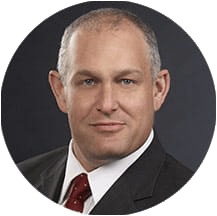If you have anything to do with hiring, it is important to understand the various types of visas available to potential employees. One visa that you should be familiar with is the H1B visa. This visa allows employers to hire foreign workers with specialized skills to fill positions in the United States. It is especially relevant now given the current labor market and shortage of skilled professionals in certain industries. Let’s take a closer look at what an H1B Visa is and how it works.
An H1B Visa is a type of nonimmigrant visa that allows U.S. employers to temporarily employ foreign workers in specialty occupations or fields requiring specialized knowledge or expertise for up to three years (and can often be extended). Specialty occupations include fields such as accounting, engineering, finance, IT, and law among many others. To qualify for an H1B Visa, an applicant must have at least a bachelor’s degree (or its equivalent) in their specialty field of work and must have been offered a job by a qualifying U.S.-based employer.
For many employers who are looking to hire foreign workers with specialized skills, the H1B Visa program offers an efficient and cost-effective way to do so without having to go through lengthy and expensive processes related to permanent residency or other types of visas. Once an employer has determined that they need an employee with specialized knowledge or skill set that is not readily available from local talent pools or through other means, they can begin the process of obtaining an H1B Visa by registering for the upcoming H-1B lottery (registration traditionally opens at the beginning of March) and then if selected in the lottery, filing Labor Condition Applications (LCAs) with the Department of Labor (DOL). LCAs are required for all applications for the H1B program; these forms provide details about the proposed employment including salary information, job duties, and other pertinent data points about the job being filled by foreign workers on an H1B Visa.
Once approved by DOL, employers can then file petitions directly with U.S Citizenship and Immigration Services (USCIS) along with all necessary documentation regarding both the employer’s qualifications as well as those of their prospective employee(s). Your candidate’s underlying non-immigrant status will determine if they are able to keep working for you now, or must wait until the H1B starts (October 1, 2023).
Working with international talent can bring your organization great opportunities but getting started can seem daunting at first due to some of the complexities involved in obtaining visas like the H1B visa for certain employees abroad. However, once you understand what it takes—from properly filing LCAs through DOL all the way up through submitting completed petitions directly with USCIS—you will be able to navigate this process more confidently when needed and use this program to further expand your business operations overseas if desired. Whether you are looking for highly-skilled professionals or entry level employees from abroad, having an understanding of how U.S immigration laws work as well as how this particular type of visa works can help ensure that your organization remains compliant while still being able to access sought after talent whenever needed regardless of the worksite location (including remote).
At Wilner & O’Reilly, APLC, we continue to assist immigrants to achieve their immigration goals. If you have questions regarding H-1B visas, contact one of our offices for a consultation with an attorney. We offer telephonic, video, and in-person consultations at our offices in Orange, Riverside, San Diego, Fresno, Sacramento, and San Francisco, California; Phoenix, Arizona; Salt Lake City and Orem, Utah; and Boise, Idaho.
ABOUT THE AUTHOR(S)
RICHARD M. WILNER – FOUNDING PARTNER

Richard M. Wilner is a founding member of Wilner & O’Reilly, APLC, and is Board Certified by the State Bar of California as a Specialist in Immigration and Nationality Law. He is admitted to practice law in the State of California and before the U.S. District Courts for the Central, Northern and Southern Districts of California, the Northern District of Texas, the U.S. Court of Appeals for the Ninth Circuit, and the U.S. Supreme Court. Mr. Wilner has received the coveted Martindale-Hubbell AV Rating, the highest legal and ethical rating that one can receive from one’s peers in the legal community. Similarly, he has been awarded the title of Super Lawyer from 2007 to the present. He is best known for his work in advising Fortune 500 companies, middle and small market businesses, entrepreneurs and foreign nationals of extraordinary ability in athletics, arts, and sciences in the complex area of U.S. Immigration and Nationality Law.


Comments are closed.